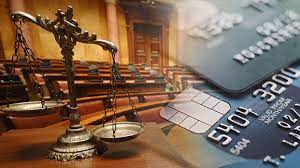lawyer, 23 years of experience in enforcement.
Enforcement proceedings are the final stage of court proceedings and enforcement of court decisions and decisions of other bodies (officials) (hereinafter - decisions).
The executor has a number of rights and obligations that are mandatory and provided for in Article 18 of the Law of Ukraine "On Enforcement Proceedings" and the procedure for collecting debt by the executive service. Thus, in case of forced execution of decisions, the executor has the right:
1) carry out an inspection of the debtors' execution of the decisions subject to execution in accordance with this Law;
2) to check the execution by legal entities, regardless of the form of ownership, by natural persons, by natural persons - entrepreneurs of decisions regarding the debtors working for them;
3) in order to protect the interests of the debt collector, to receive, free of charge, from state bodies, enterprises, institutions, organizations, regardless of the form of ownership, officials, parties and other participants in enforcement proceedings, explanations, certificates and other information, including confidential information, necessary for enforcement actions;
4) in the presence of a reasoned court decision on forced entry into housing or other possessions of an individual, to freely enter the land plots, residential and other premises of the debtor - an individual, the person in whom the debtor's property is located or the property and funds belonging to the debtor from other persons , conduct an inspection in them, if necessary, forcibly open them in accordance with the established procedure with the involvement of police officers, seal such premises, arrest, seal and seize property belonging to the debtor, which is located there and which, according to the law, can be levied. Forcible entry into land plots, residential and other premises in connection with the enforcement of a court decision to evict a debtor and move in a debt collector and a decision to remove obstacles to the use of premises (housing) is carried out exclusively on the basis of such a court decision;
5) to freely enter land plots, premises, warehouses, other possessions of the debtor - a legal entity, inspect them, forcefully open and seal them;
6) seize the debtor's property, seal it, seize it, transfer such property to storage and sell it in accordance with the procedure established by law;
7) impose a seizure on the debtor's funds and other valuables, in particular on funds that are in cash registers, in accounts in banks, other financial institutions and bodies that provide treasury services for budget funds (except for funds in the accounts of payers in the system of electronic administration of value added tax the value of funds in accounts with a special mode of use, special and other accounts, foreclosure on which is prohibited by law), to accounts in securities, as well as to seal cash registers, premises and places of money storage;
8) register property encumbrances in the process and in connection with executive proceedings;
9) use, with the consent of the owner, premises for the temporary storage of seized property, as well as vehicles of the debt collector or the debtor, with their consent, for the transportation of property;
10) apply to the court or body that issued the executive document with an application (submission) for clarification of the decision, on issuing a duplicate of the executive document in the cases provided for by this Law, to the court that issued the executive document - with an application (submission) on establishing or changing the order and method of execution of the decision, on postponement or installments of the execution of the decision;
11) to make decisions on postponement and installments of execution of the decision (except for court decisions), in the presence of a written statement of the debt collector;
12) apply to the court with a request to search for the child, to issue a reasoned decision on forcible entry into the home or other property of the debtor - an individual or other person with whom the child resides, in respect of which an executive document has been drawn up on its removal;
13) apply to the court for forced entry into the home or other property of the debtor - an individual or other person in whose possession the debtor's property or property and funds belonging to the debtor from other persons are located;
14) summon individuals, officials regarding executive documents that are in executive proceedings.
If the debtor does not appear at the executor's summons without valid reasons, the executor has the right to apply to the court for the application of a pretext to him;
15) involve in the established procedure witnesses, police officers, other persons, as well as experts, specialists, and for the assessment of property - subjects of assessment activity - economic subjects;
16) impose penalties in the form of fines on individuals, legal entities and officials in cases provided for by law;
17) use photo and film shooting, video recording during enforcement of decisions;
18) require materially responsible and officials of debtors - legal entities or debtors - natural persons to provide explanations on the facts of non-fulfillment of decisions or legal requirements of the executor or other violation of the requirements of the legislation on enforcement proceedings;
19) in the case of the debtor's evasion of the obligations imposed on him by the decision, apply to the court for the establishment of a temporary restriction on the right of the debtor - a natural person or the head of the debtor - a legal entity to leave Ukraine until the obligations under the decision are fulfilled or the debt is settled by decisions on collection of periodic payments;
20) to involve, if necessary, in conducting or organizing executive actions of business entities, including on a paid basis, at the expense of the debt collector's advance payment;
21) receive from banks and other financial institutions information about the availability of accounts and/or the state of the debtor's accounts, the movement of funds and operations on the debtor's accounts, as well as information about the debtor's contracts for the storage of valuables or the provision of an individual bank safe for property lease (rent) to the debtor, which is protected by the bank;
22) exercise other powers provided for by the Law of Ukraine "On Enforcement Proceedings".
The executor's requirements for the execution of decisions are mandatory throughout the territory of Ukraine.
During the execution of decisions, the executor has the right to direct access to information about debtors, their property, income and funds, including confidential information contained in state databases and registers, including electronic ones. The procedure for accessing such information from databases and registers is established by the Ministry of Justice of Ukraine together with the state bodies that ensure their management.
To date, administrative and criminal liability is provided for a number of actions of debtors or other persons within the framework of executive proceedings, including executive proceedings on debt collection.
So, as we can see, the executor has quite a lot of leverage to collect debts and execute court decisions of a non-property nature. Unfortunately, quite often, it happens that the performer does not fully use his opportunities provided by the current legislation of Ukraine, or on the contrary abuses his rights. In such situations, a relevant expert on the issue of enforcement proceedings will help to understand and provide professional support for enforcement proceedings.

































